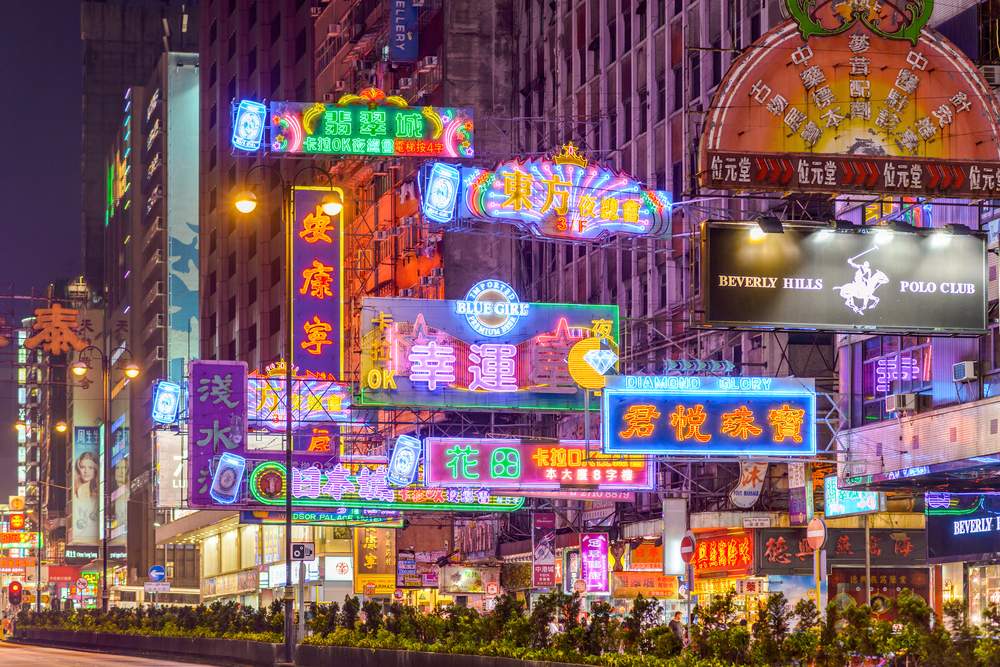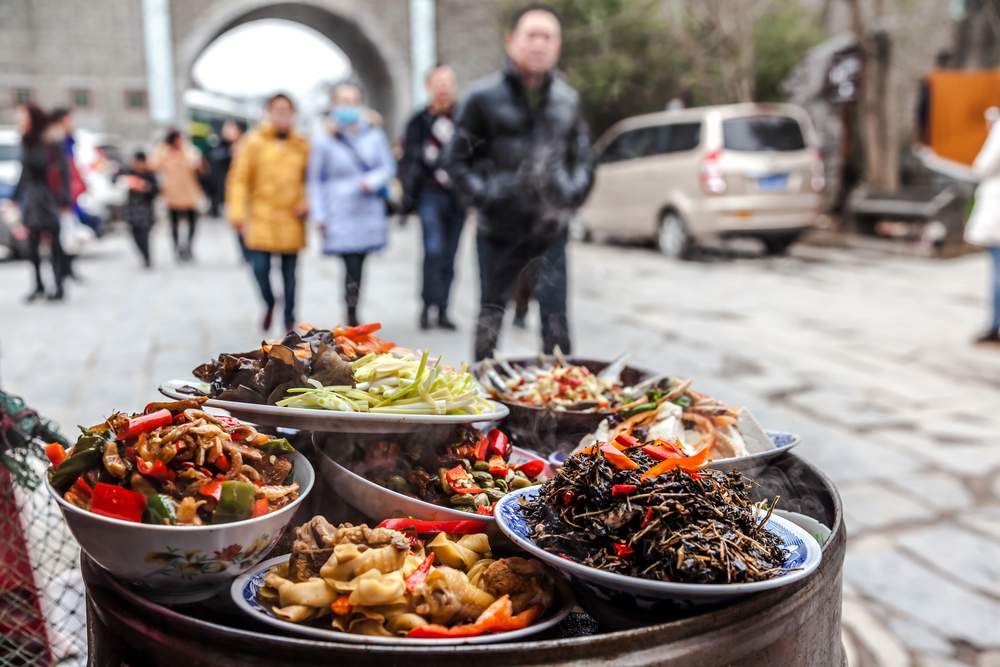It’s understandable, but it’s a shame. After all, China is home to one of the world’s oldest continuous cultures. The country is incredibly rich with tradition, heritage, and history. It’s the home of iconic landmarks like the Great Wall, the Forbidden City, and the Terracotta Warriors. Even if it didn’t have a wealth of history and culture, it’s one of the most important and powerful countries in the world.
There are many compelling reasons to visit China, and here is one more: China is not as difficult to travel as you think. It may not be the cake-walk that Thailand sometimes is, but it’s totally navigable, even for a novice traveler.
Here is a primer on some easy things to do and remember to make your trip to China go smoothly:

Language woes
For many people, the language barrier is one of the most intimidating things about China, which is understandable. Not only does practically no one outside of the tourism industry speak English, Chinese is one of the most difficult languages in the world to learn and understand. As a tonal language, it’s very difficult to master even a few basic words like you would in another country. The written language is also completely undecipherable to novices.
Don’t despair. Although your chances of understanding Chinese are minimal, there are some bright points. In some ways I found China easier to travel in than South America, because in China nobody expects you to speak the language. Instead of dismissing me or treating me like an idiot, the people of China worked very hard to close the language barrier via mimes, guesses, and hand gestures. For many people talking to a foreigner wasn’t a bother but an interesting novelty.
Your hostel will be your new best friend in navigating Chinese civilization. The youth hostels in China are excellent; they are well staffed with young, English-speaking Chinese people who are eager to help you with a variety of tasks. They’ll pick you up from the train station, help you book tickets, and write out addresses in Chinese for you. Many hostels also run tours or their own cultural programs to help boost your China experience. Take full advantage of these opportunities.
Transportation
Don’t underestimate how enormous China really is. It takes 13 hours to get from Shanghai to Beijing on the train. As a result, if you’re short on time, you would be wise to consider buying domestic flights from place to place. They are inexpensive, and your hostel can help you arrange them.
If you have more time to play with, you will definitely want to consider traveling by train. China has an excellent rail network that can take you nearly everywhere in the country. When you purchase an overnight ticket, it helps to know the different classes of travel. Soft sleepers are the most comfortable- semi private rooms with your own bed. Hard sleepers are a bit cheaper and consist of 2 triple bunk beds in a small cabin- somewhat cramped but they offer a much more fun look at Chinese culture. Prepare yourself for interesting smells, singing, and old Chinese men playing cards late into the night. At the bottom of the totem poll are hard seats- which are non-reclinable regular seats. This choice can be smokey and uncomfortable.

Chinese food
Chinese food has been horribly maligned, and many people have the impression that it’s somehow gross or full of bugs. While it’s definitely different from what you can pick up at your local takeaway, Chinese food in general is fresh, varied, and often delicious. Pork is very common, but there are many vegetable options as well. Rice and noodles dominate most everywhere. The cuisine is incredibly diverse and varied from region to region, so you are bound to find something that appeals to you.
You definitely won’t experience the real local flavors and styles in your hostel or hotel restaurant, however. To get the good stuff you need to get out to where the locals are eating. This can be a bit intimidating – the biggest challenge associated with Chinese food is figuring out how to order it. My quick fix is to have a Chinese person, maybe someone at your hostel, write out the names of a few dishes they think you’ll like. You can then present that paper directly to your waiter (most Chinese restaurants are prepared to cook nearly any dish on demand – it’s kind of amazing).
Alternatively, check out the street food scene. Each city has their own delicacies, and this is one of the cheapest and most delicious ways of exploring the local food scene. Unlike in a restaurant you can get by simply by using your fingers to point. Look for the stands with the longest lines – you may not know exactly what you’re getting, but it’s probably something good.
Safety
China is exceptionally safe for foreigners. Many of the social issues that are problems for everyday citizens do not affect international visitors. The penalties for interfering with or robbing a foreign tourist are very severe, so violent crime is extremely rare. Pick-pocketing does occur, although far more common are scams targeted at tourists, particularly in Beijing and Shanghai. Before you arrive, take a moment to familiarize yourself with some of the common scams including the tea shop scam and the Chinese art student scam.
Realistically, the biggest danger to tourists is probably traffic. The streets in China operate under a kind of controlled anarchy, and traffic laws are more like suggestions. Be very cautious when crossing the street, and try to follow a group of locals if possible. Be aware even on sidewalks, where motorbikes often speed recklessly.
Culture check
You will probably experience some culture shock when arriving in China. It’s important to remember that China has very different cultural norms than we do in the west. Some things that we consider to be terribly rude are just not in China – things like spitting, cutting in line, or talking very loudly. Personal space is less valued as well. Keep in mind it’s not that the Chinese are rude people, these things are just not considered rude in their culture. Once you adjust your paradigm, you will feel a lot more comfortable.
Outside of Shanghai and Beijing, foreigners are still a novelty. If you are any race other than Han Chinese, you can expect to be stared at and sometimes even touched (particularly if you have light hair). People will take your picture, often without asking, and sometimes will even want to pose with you or have you hold their children. You may be subjected to very personal questions (again, this is not rude in China). If you can take it all with good humor, you will fare okay.
The Chinese are ultimately a very hospitable people. If you are lucky enough to make friends with any locals, you can expect to be treated royally with free flowing food and drinks. Make sure you reciprocate if you can!

Where to go
So, now that you are super excited to visit China, the golden question is, Where should I go?
Many people who visit China only end up hitting the major spots – Beijing and the Great Wall, Shanghai, maybe the Terracotta Warriors in Xi’an. These are all amazing and worth seeing, but there is so much more to explore in this massive country.
So think bigger. If you go to Xi’an, spend a couple days exploring the walled city- it’s the start of the Silk Road and one of the oldest cities in the world. Visit the stunning historic cities of Nanjing or Hangzhou. Eat spicy Szechuan food and see pandas up close in Chengdu. Head down south to the amazingly scenic Yunnan province where you can visit Tiger Leaping Gorge. There are nearly endless possibilities.
Traveling in China is basically one big lesson in problem solving. Even though there are major hurdles you may not face elsewhere, the rewards are so big in a diverse and and historical country that is changing so ridiculously fast. Maybe that is the biggest reason to visit China now – it won’t be the same place in ten years.
Like many places, traveling here can be hard and frustrating, and sometimes really weird. The stories and the experiences however, make it worth it.
To read more about traveling in China, check out the following articles and resources:
Photo credits: Tutti Frutti, chingking, zhudifeng, Sean Pavone, 06photo, chungking, Sean Pavone
